Throughout history, necklaces have been more than just beautiful accessories; they have been symbols of status, protection, and personal expression. Whether crafted from precious metals or simple threads, necklaces carry meaning across cultures and periods. But what is it that makes people choose to wear them? The reasons behind this age-old practice are as diverse as the designs themselves. In this article, we'll explore why people wear necklace, shedding light on the deeper significance behind this beloved piece of jewelry.
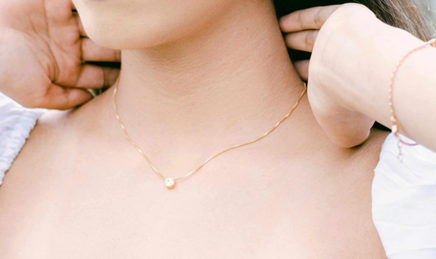
Necklaces hold diverse significance, often representing love, faith, and truth. They can carry deep personal meaning or reflect cultural and spiritual values. Here are five common types of necklaces and the symbolism they embody.
Why do people wear cross necklaces? It's often both an outward expression of inner faith and a reminder of spiritual values. Perhaps one of the most universally recognized symbols, cross necklaces carry deep religious significance, especially in Christianity. They are worn as a sign of faith, representing Christ's sacrifice and the wearer's connection to their spiritual beliefs. The act of wearing a cross is not only a symbol of devotion but also a form of protection, offering the wearer a sense of strength and guidance.

A heart pendant is a timeless symbol of love and affection. Often exchanged between lovers or family members, a heart-shaped necklace represents deep emotional connections. This type of necklace is commonly given as a gift on special occasions like anniversaries, birthdays, or Valentine's Day, signifying the bond between two people. Whether worn by a romantic partner or as a gesture of self-love, a heart necklace serves as a constant reminder of love and emotional intimacy.
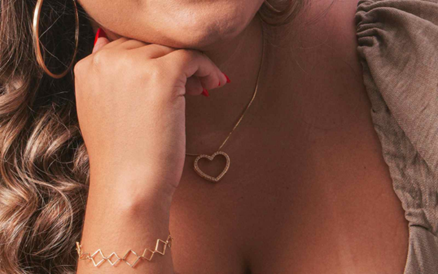
Birthstone necklaces, adorned with stones representing the month of the wearer's birth, carry a personal and symbolic connection to one's identity. Each stone is believed to possess unique properties and meanings, often tied to personal growth, personality traits, or life events. Here's a breakdown of each birthstone and its symbolic significance:
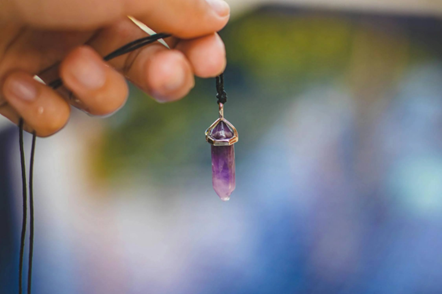
Infinity symbols in necklaces often represent an eternal connection, whether between partners, family members, or friends. The continuous loop of the infinity symbol reflects the idea of endless love, unbreakable bonds, and the enduring nature of relationships. These necklaces are frequently exchanged between close companions or worn as a symbol of an everlasting promise. Whether it signifies romantic love or a cherished friendship, the infinity pendant serves as a visual testament to the permanence of a bond.
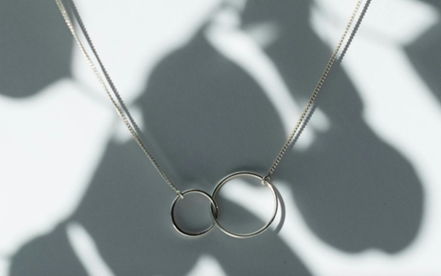
Nature-inspired pendants, such as animals or trees, symbolize different aspects of life. For example, a pendant shaped like an elephant often represents strength and protection, while a Tree of Life pendant signifies interconnectedness and personal growth. These necklaces are commonly worn by those seeking a deeper connection with nature or a reminder of qualities they aspire to embody—such as resilience, balance, or wisdom.
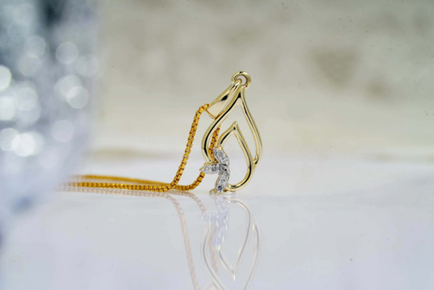
Necklaces have been worn for centuries, often serving purposes beyond decoration. From symbolizing love to offering spiritual protection, they hold deep meaning for many. But why do people still wear necklaces today? Let's explore five common reasons behind this timeless accessory.
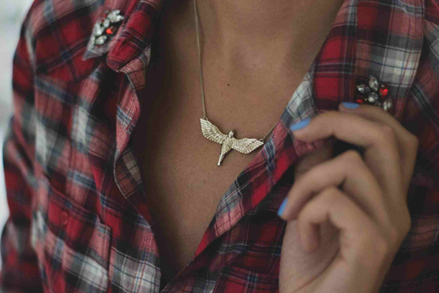
In many cultures and religions, necklaces serve a deep spiritual purpose. For instance, Hinduism and Buddhism both incorporate necklaces with specific beads or pendants that are used during prayer or meditation. Christian cross necklaces, worn by individuals around the world, are not just a fashion choice but a sign of religious faith. Such necklaces can be seen as symbols of one's beliefs, acting as a form of devotion and connection to a higher power.
Fashion is an obvious reason why people wear necklaces. Jewelry, including necklaces, allows individuals to express their personality, tastes, and unique style. Whether it's a minimalist chain or a statement piece adorned with gemstones, the choice of necklace often reflects one's aesthetic preferences or current fashion trends. Necklaces can be paired with various outfits, enhancing the overall look and creating a focal point of interest.
Many necklaces are worn because they hold sentimental value. A necklace given as a gift for your lover or friends, passed down through generations, or inherited after the passing of a loved one can evoke powerful emotions and memories. Such necklaces are often treasured for the connection they maintain between the wearer and a special person or event. For example, a necklace might commemorate a wedding day, a birth, or another milestone in life.
Throughout history, necklaces have been worn as a symbol of wealth and social status. The materials from which they are crafted—such as gold, diamonds, or other precious stones—often indicate the wearer's economic standing. In certain periods, an extravagant necklace signified not only financial prosperity but also social influence. Today, high-end brands continue this tradition, with luxury necklaces serving as indicators of affluence.
In some cultures, necklaces are worn for their believed protective or healing properties. The wearing of certain gemstones like amethyst, turquoise, or jade is thought to bring good fortune or alleviate negative energy. Additionally, symbolic charms like the evil eye are worn to protect against harm or bad luck. The notion of wearing a necklace as a shield—whether physical or metaphysical—remains an enduring tradition in many parts of the world.
Why people wear necklace? The answer lies in the personal symbolism each piece carries—cultural honor, love expression, or any possible. They carry emotional, spiritual, and aesthetic significance that goes beyond simple decoration. If you're looking to find the perfect necklace, consider what resonates most with you. It could make all the difference in choosing a piece that truly speaks to your heart.
The meaning of wearing a necklace can vary greatly depending on the individual, the type of necklace, and the cultural or religious context. Necklaces can symbolize love, faith, wealth, protection, or personal milestones. They often carry sentimental value and can be used to express one's identity or beliefs.
Certain types of necklaces are believed to offer health benefits. For example, necklaces made from specific gemstones, like amber or turquoise, are thought to possess healing properties that can alleviate stress, promote relaxation, or balance energy. Similarly, some people wear necklaces containing essential oils, aromatherapy beads, or magnetic properties for purported health benefits.
For women, necklaces symbolize love, empowerment, femininity, and independence. Also, they can be tokens of affection, family heirlooms with sentimental value, or stylish statements of fashion, elegance, and personal identity.
Learn how to make a coral necklace with our detailed guide, covering making steps, coral selection, and care tips for a beautiful handmade accessory.
Read MoreLearn how to spot quality jewelry online with expert tips on identifying authentic pieces, finding reputable sellers, and shopping confidently.
Read MoreThis complete guide teaches you how to clean vintage jewelry safely, maintain its shine, and avoid common mistakes, ensuring your pieces last for years to come.
Read MoreThis ultimate guide shows you how to repair jewelry at home with 6 simple tips. Learn to restore broken clasps, missing stones, elastic bracelets, and more!
Read More